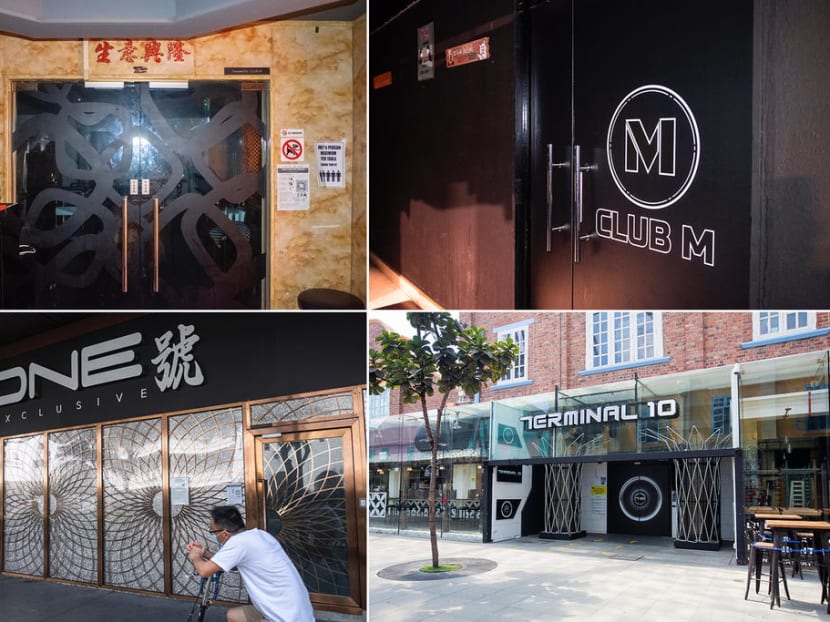KTV Covid-19 cluster: Only 6 of first 88 cases fully vaccinated; include ‘frequent patrons’ aged 19 to 60
SINGAPORE — Of the 88 Covid-19 cases that have emerged from the growing cluster at karaoke lounges and clubs as of Thursday (July 15), only six have been fully vaccinated, while 82 were not vaccinated or partially vaccinated.

The majority of Covid-19 patients in the growing KTV cluster are young, which may account for why they have no symptoms or have mild infection, a Ministry of Health official said.
SINGAPORE — Of the 88 Covid-19 cases that have emerged from the growing cluster at karaoke lounges and clubs as of Thursday (July 15), only six have been fully vaccinated, while 82 were not vaccinated or partially vaccinated.
“So in other words, they have not yet received immune protection from vaccination,” Associate Professor Kenneth Mak said at a press conference by the Government's Covid-19 task force on Friday.
The director of medical services at the Ministry of Health added that 20 of the 88 have no symptoms and “remain well in isolation”.
The remaining had mild symptoms ranging from fever, cough, runny nose, sore throat, some loss of smell and taste and body aches.
None of the cases require oxygen support or is under intensive care.
Assoc Prof Mak noted that the majority of those in this KTV cluster are young, “which may have accounted for the fact that they were either asymptomatic or have mild infection”.
He noted that the age range of infected Singaporeans are between 19 and 60, and they include frequent patrons of these nightclubs.
“However, as many of the most severe symptoms for Covid-19 only manifest in the second week of infection, we will need to continue to keep a close watch on all of them while they remain in isolation,” he said, adding that many of the cases are being cared for in community care facilities where medical personnel such as doctors and nurses are monitoring their progress.
Those with a higher risk of severe infection have been sent to hospitals where they can be monitored more carefully and can receive more care if that condition worsens.
Assoc Prof Mak identified three groups of people in the cluster.
The first are mostly staff members of the nightclubs and those believed to be working as hostesses at these entertainment outlets.
This group has visited many karaoke clubs and outlets — either on the same day or on multiple days during the period of concern.
“Some of the individuals who visited multiple KTV outlets, particularly on the same day, were visitor pass holders and we cannot exclude the possibility that many of them, as mentioned before, were social hostesses,” Assof Prof Mak said.
He added that they come from various countries including Laos, the Philippines, Thailand and Vietnam. Others work as staff members within these places in a variety of roles.
The second group of cases comprise mainly Singapore residents who are frequent patrons of these KTV clubs.
“It's likely that there has been considerable mask-off, close contact interactions, which had taken place within these premises, which had allowed infection then to spread,” he said.
The third group found to have contracted the virus are household members of the first two groups, suggesting that some household transmission has already taken place, Assoc Prof Mak added.








